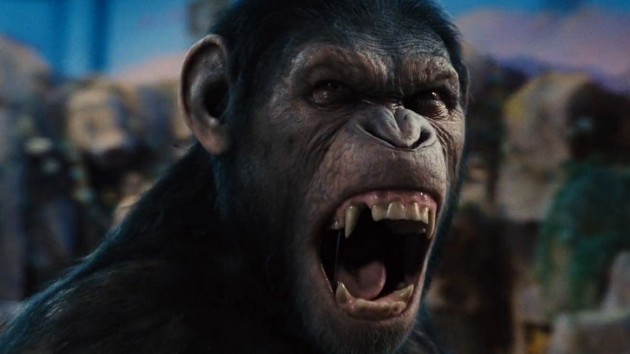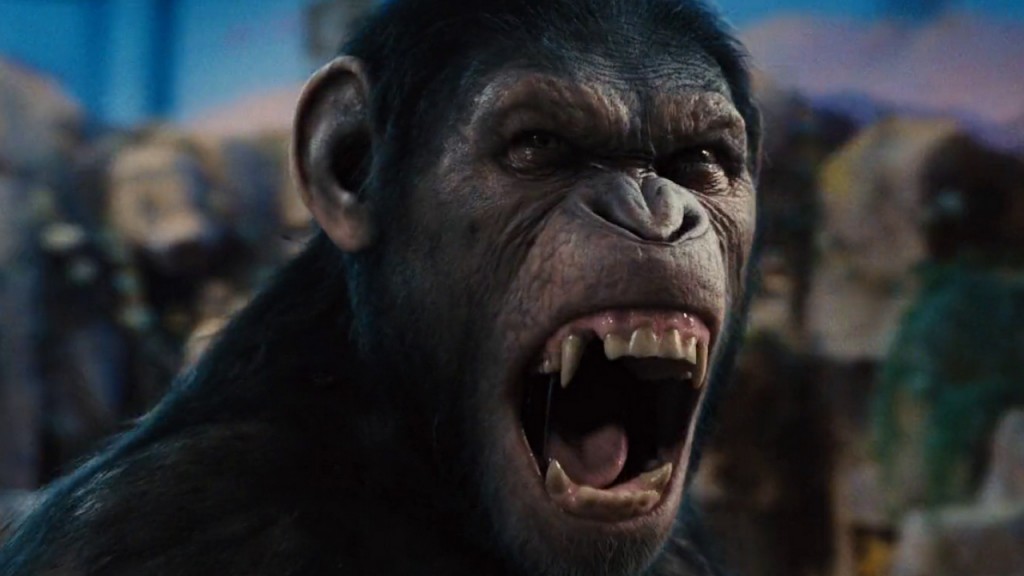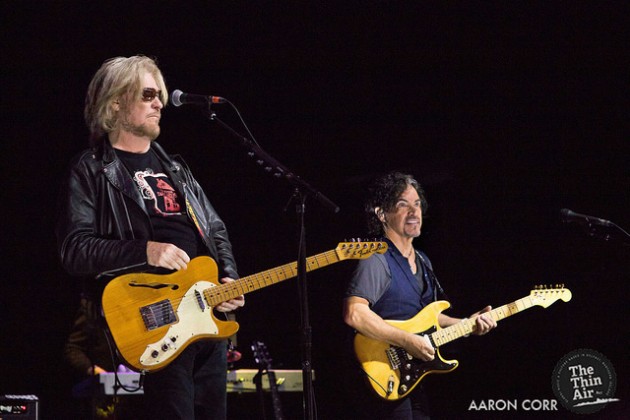The first of this Planet of the Apes trilogy, 2011’s Rise of the Planet of the Apes, benefited enormously from the goodwill produced by exceeded expectations. The original series of films, based on Pierre Boulle’s 1963 sci-fi novel, existed in the public mind primarily as a vague collection of B-movie twists and lines of dialogue, ripe for sly parody. The first attempt at a modern remake, Tim Burton’s 2001 film, was muddled and saddled with an obtuse twist ending. There was room to go further.
Rise, in which James Franco’s scientist raises the hyper-intelligent ape named Caesar and unwittingly develops a population-devastating virus, suffered badly from franchise set-up syndrome. It only really gets going in its third act, when Caesar and his IQ-enhanced comrades engineer a jailbreak and then take on San Francisco’s finest on the Golden Gate Bridge. Dawn of the Planet of the Apes takes the earlier film’s promise of greater thrills to come and runs with it. Years after the ‘simian flu’ virus has brought civilisation to near-collapse, a small group of desperate survivors, led by the bruised, pragmatic Dreyfus (Gary Oldman), come into conflict with Caesar’s highly-developed forest colony. It’s man versus monkey and it’s fantastic fun, an assertively staged summer blockbuster which doubles as a surprisingly moving parable about man and ape’s common heart of darkness.
Rise struggled with visual flatness, confined by the script to science labs and James Franco’s domicile, but Dawn is rich and expansive in its presentation of the ape’s forest home and the ruins of San Francisco. New directorMatt Reeves (Cloverfield, Let Me In) and cinematographer Michael Seresin have produced a beautifully rendered film. We find the apes in a state of noble savagery, their harmonious mini-society hunting, raising children and abiding by Caesar’s ideals (‘ape not kill ape’). Their contact with archetypal reasonable man Malcolm (Jason Clarke) and his scouting party, sent to investigate the local dam as a source of potential power for their settlements, stirs up old fears and resentments and jumpstarts the most sordidly human of practices: politics. Malcolm and his family, and the other human characters, are a little thinly drawn, but the real drama is with their simian cousins.
What marvels the apes are! Even the animation in Rise seems lightweight by comparison: here, the apes are totally believable and captivating, dignified and terrifying in their beastly splendour. They are a remarkable achievement, a testament to the talents of the film’s motion-capture performers and digital animators. Andy Serkis gets top billing with his Caesar, but Tony Kebbell (rival Koba), Nick Thurston (son Bright Eyes), Karin Konoval (old friend Maurice) and Judy Greer (wife Cornelia) also deserve mentions, bringing personality and vividness to their hairy counterparts. After the computer-generated soullessness of Transformers, it’s a relief to see digital resources marshalled in the service of genuine cinematic spectacle.
It’s spectacle with a touch of Shakespeare to it. Caesar’s hold on power is challenged by Brutus stand-in Koba, a bitter friend who is frustrated with his leader’s courting of human friendship and advocates a more aggressive approach to the human problem. The loyalties of his son too, exhibiting a pan-species adolescent moodiness, seem up for grabs. The air is tinged with the threat of insurrection. If the political intrigue seems rote on paper, then in practice it is utterly absorbing: the slow disintegration of the ape’s peaceful order is surprisingly heart-breaking. The charge that the script, from Mark Bomback and producers Rick Jaffa and Amanda Silver, has only a facile intellectual interest in matters of power is hard to deny, but it provides strong emotional and thematic girders for the action: the fragility of civilisation, the intoxication of hatred, the necessity of empathy and the betrayal of war. The apes’ struggle provides a moving fable about the impossibility of innocence. The inevitably of war (dictated partly by the narrative necessities of the franchise) lends the whole experience a tense, grim sense of tragedy.
Still, when the fighting comes, it’s glorious. The action is tight and well-paced, and peppered with images of arresting incongruity. You haven’t seen an ape until you’ve seen one riding horseback through flames, a machine gun in either hand. The third act provides high-level B-movie thrills, shot through with an air of moral disenchantment. War is Caesar’s loss but the audience’s gain. My word – the final film is going to be insane. Conor Smyth
Dawn of the Planet of the Apes is out in cinemas nationwide tomorrow, Thursday, July 17.






